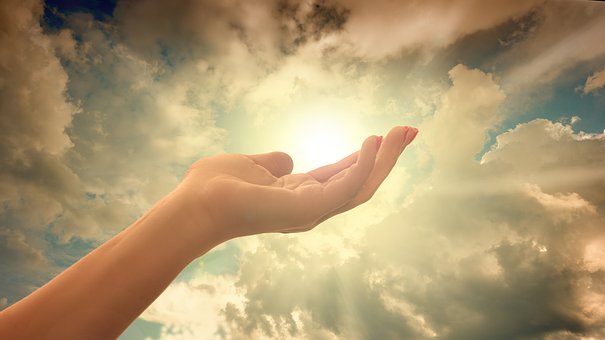
We all have life stories that brought us to where we are today–creating a unique blueprint of our DNA. An important aspect of each of our holistic triads (mind, body and spirit) is our spirituality journey. In this writing, I will share how my spirituality has evolved from a strict religious upbringing to my current holistic wellness mission. And in doing so, I will be including my perspective regarding the similarities and differences between religion and spirituality.
First let’s define spirituality since there may be some confusion regarding that word. People tend to think of it as something very strange and mysterious and often struggle to differentiate it from religion. The following are definitions adapted from www.dictionary.com: religion and spirituality are two related yet distinct terms associated with faith. Religion denotes “a set of beliefs concerning the cause, nature, and purpose of the universe, usually involving devotional and ritual observances and a moral code.” In contrast, spirituality can be defined as “the quality of being spiritual”–the major difference is one of believing versus being.
Deepak Chopra describes them both this way: “Religion is belief in someone else’s experience and Spirituality is having your own experience.”
At a young age, I knew nothing about the word “spirituality” and options other than attending church– and boy did we attend church–not once but three times each week. In addition, I attended church camp for two weeks each Summer–one for we kiddos and the other for our family. In addition, if there was a “revival” scheduled at our church, we attended nightly. To say the least, over time I became quite burnt out with that deal and I must admit, what bothered me the most, is how negative other religions were spoken of–from Catholics to Baptist to Buddhists. That was all very confusing to me because didn’t God make us all and weren’t we all one? And how could we (in that church) be the only ones that had “the” answer–while no one else did? Heaven, hell and damnation were routinely, shall we say, threatened.
Even though I grew up in a loving environment, I was anxious to leave home (one day after graduating from HS) and was relieved to choose for myself what to do or attend–and guess what–I chose to “free range” it, which meant, heck no I’m not going to church today if I don’t have to go–wow, what freedom! I totally needed to find the real Sherry. At times I attended some other churches from Baptist to non denominational–none were a fit for me at that time. Meanwhile, I enjoyed learning about and using a few outside-the-box Eastern philosophies such as yoga and I-Ching, (a Chinese book of change involving throwing coins to determine a course of action). Hey, guess I should have asked about attending church now that I’m thinking about it. (smile)
After hitch hiking across the country with one of my roommates, I moved to Denver and worked my way through nursing school in the VA Hospital. I SO loved taking care of all those veterans–many of which were coming back from Vietnam. Through time, I learned about holistic wellness–mind, body and spirit–it made a lot of sense, however, realistically, while working as a clinical floor nurse in the VA Hospital, there typically was only time to deal with meeting my patients’ physical needs–hopeful of having at least a little influence on their mental and spiritual needs knowing that was the goal.
After joining the Air Force, I married an AF officer who had been raised Episcopalian (you know, Catholic light, one third less the guilt)–that worked for me. So that’s what our family attended (about every other Sunday). Interestingly enough those Episcopalians, for the most part, seemed quite open and non-judgmental–that I liked a lot, too. (smile) And they drank “real” wine for communion every Sunday. While we lived in Colorado Springs, a gay bishop was appointed to the Episcopal Church. At the time, while this bishop appointment seemed to divide the Episcopal church from conservatives to liberals, our pastor’s first words that Sunday were “like Jesus, our church is open to whomever needs us” so we were the only church to market to the gay community in that community–be still my heart–isn’t this the way we should be open and loving?
Once I retired from the Air Force and my career in the “sickness world”, I began a journey of educating people about holistic wellness and nutrition while my spirituality journey evolved. I was really into natural self care, read many books, took yoga and meditation classes and learned many different spirituality options–I felt like a sponge. I was also introduced to Dr. Wayne Dyer on PBS–what a spiritual leader he was! And these days I totally love Oprah’s “Super Soul Sunday” programs where she continues to broaden my concept of spirituality and connection.
So I ask you–does having spirituality need to happen in a church? I’ve learned and felt it is not a requirement like I was originally taught, however, many folks do get much value by attending church. Basically, we all need to decide for ourselves in order to evolve and to be our genuine selves. So this is what I have learned through the years:
Spirituality can take many forms. It truly is not a one size fits all as many religious zealots would argue since there are seemingly many interpretations of the various Bible passages. Nevertheless, we are blessed in this country with freedom of choice, whether that be in a synagogue or otherwise and thankfully we have been given the option of discernment and choice by God–correct?
There are 19 major religious groupings in the world, and from them a total of 10,000 distinct religions, although only about 270 of those have half a million or more followers. In the United States alone, over 2,500 different religious faiths can be observed. Wow–that’s a lot of different ways of formulating belief systems. And yet, most of them have common sources. The religions of Abraham (Judaism, Christianity, and Islam) believe in one universal God, experienced as personal, who is the creator of the universe and the major source of values, while the main Eastern religions (Hinduism, Buddhism, and Shintoism) grew out of local traditions and focus on insight.
(To be continued in my next article.)
